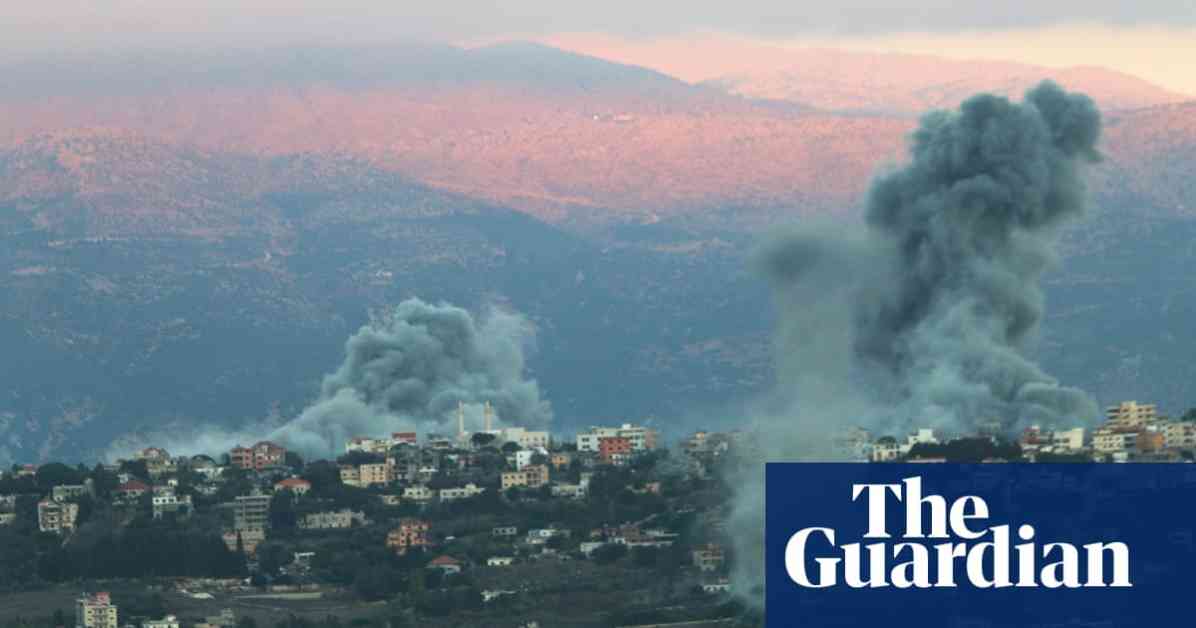Israel Launches Ground Attacks on Hezbollah in Lebanon, Confirms US
Israeli forces have reportedly launched limited ground operations targeting Hezbollah inside southern Lebanon, according to US and other officials. The state department spokesperson, Matthew Miller, confirmed that Israeli forces are conducting operations to target Hezbollah infrastructure near the border.
Heavy shelling has been reported along the boundary in the area north of Kiryat Shmona, where Israeli armor and infantry advanced into Lebanon during the 2006 war. Airstrikes have also continued in Beirut and in at least 10 locations across the south of Lebanon, as stated by Lebanon’s state news agency.
Israel’s defense minister, Yoav Gallant, informed community leaders that the “next phase of the war against Hezbollah will begin soon.” Israeli media sources indicated that the cabinet had approved the next stage of the campaign against Hezbollah following a meeting chaired by Prime Minister Benjamin Netanyahu.
Earlier on Monday, Netanyahu issued a warning to Iran, stating that Israel could strike anywhere in the region at will. He emphasized Israel’s reach in the Middle East, sending a message to the Iranian people through a video address.
US President Joe Biden expressed awareness of Israel’s plans to launch an operation into Lebanon and urged against such a move, calling for a ceasefire. The towns of Marjayoun, Wazzani, and Khiam have been targeted by shelling, leading to evacuation orders for residents.
Hezbollah claimed to have targeted Israeli soldiers near the Lebanese border towns of Adaisseh and Kafr Kila, resulting in confirmed casualties. The ongoing conflict has escalated with Israeli airstrikes and ground operations in Lebanon.
Lebanon’s health ministry reported 95 people killed and 172 injured in Israeli strikes across the country on Monday. The Lebanese army announced repositioning and regrouping forces amid reports of withdrawal from the southern border region.
Despite the escalating violence, Hezbollah vows to continue fighting, with replaced commanders ready to lead. The Israeli military’s offensive aims to halt Hezbollah’s cross-border attacks, affecting thousands of Israelis unable to return to their homes.
Israeli airstrikes have targeted Hezbollah strongholds, resulting in casualties and widespread destruction. The situation remains volatile with the potential for further escalation and casualties on both sides.
International Concerns and Calls for Ceasefire
International concern has grown over the escalating conflict between Israel and Hezbollah, with calls for an immediate ceasefire from various countries, including the US, France, and other Arab and European nations. The toll on civilian lives and infrastructure in Lebanon has raised alarms worldwide.
The United Nations and other humanitarian organizations have expressed deep concern over the humanitarian crisis unfolding in Lebanon, with thousands displaced and in urgent need of assistance. The impact of the conflict on innocent civilians underscores the urgency of finding a peaceful resolution to the ongoing violence.
Historical Context and Regional Implications
The history of conflict between Israel and Hezbollah dates back decades, with both sides engaging in frequent clashes and hostilities. The latest escalation in violence has regional implications, drawing in other countries and threatening stability in the Middle East.
The involvement of Iran, a key supporter of Hezbollah, adds another layer of complexity to the conflict. The proxy war between Iran and Israel through Hezbollah has raised tensions in the region, leading to fears of a wider regional conflict.
The strategic importance of southern Lebanon, with its rugged terrain and Hezbollah strongholds, has made it a focal point in the ongoing conflict. Israeli incursions into Lebanon have faced challenges in the past, highlighting the complexities of engaging in ground operations in the region.
Challenges and Path to Peace
As the conflict intensifies, the need for a diplomatic solution becomes more urgent. Finding a path to peace in the midst of escalating violence and destruction is a daunting task, but essential for the well-being of all parties involved.
The humanitarian crisis in Lebanon underscores the human cost of war and the urgent need for a ceasefire. The toll on civilian lives, infrastructure, and the economy is devastating, and the international community must redouble its efforts to bring an end to the violence.
Efforts to de-escalate the conflict and engage in meaningful dialogue are crucial steps towards a lasting peace in the region. The cycle of violence and retaliation only leads to further suffering and instability, underscoring the importance of diplomacy and conflict resolution.
In conclusion, the ongoing conflict between Israel and Hezbollah in Lebanon has escalated, with ground operations and airstrikes targeting Hezbollah strongholds. The international community must work together to find a peaceful resolution and prevent further loss of life and destruction. The path to peace in the region is challenging but essential for the well-being of all involved.












